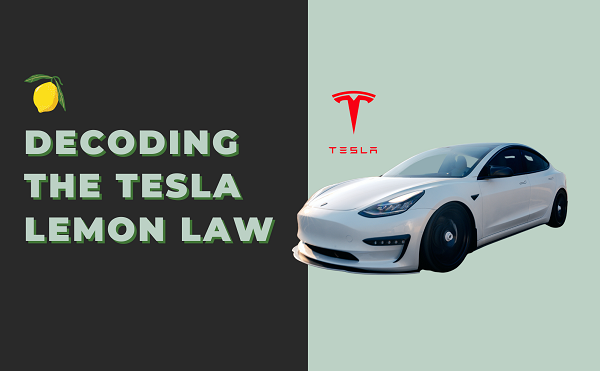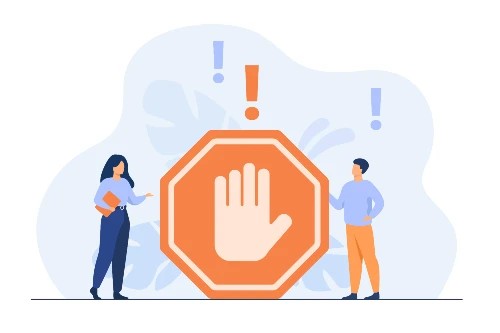Why Does Jeep Have So Many Buybacks?
Jeep, an iconic automotive brand, has long been synonymous with rugged durability and off-road prowess. Originating from the battlefields of World War II, Jeep has evolved into a beloved symbol of adventure and freedom, appealing to a broad spectrum of consumers. Known for models like the Wrangler, Cherokee, and Grand Cherokee, Jeep has carved out a unique niche in the automotive market, combining utility with a distinct style.

However, in recent years, Jeep has garnered attention for reasons beyond its adventurous spirit. A notable trend has emerged: a significant number of Jeep vehicles are being bought back by the manufacturer. These buybacks, often rooted in the legal framework of the Lemon Laws, raise questions about the quality and reliability of Jeep vehicles.
Lemon laws are designed to protect consumers from chronically defective vehicles. They mandate that if a vehicle has significant defects that cannot be repaired after several attempts or if it spends too much time in the shop, the manufacturer must repurchase it from the owner, hence the term “buyback.” These laws vary by state, but the underlying principle is consumer protection.
Jeep History
Jeep’s history is deeply intertwined with American culture and heritage. Originating during World War II as a military utility vehicle, it quickly became a symbol of American ingenuity and ruggedness. Post-war, Jeep transitioned into the civilian market, gaining popularity for its durable and versatile vehicles capable of handling a variety of terrains.
Over the decades, Jeep has expanded its lineup to include models like the Wrangler, famous for its off-road capabilities, and the Grand Cherokee, a balance of luxury and performance. This diverse range has solidified Jeep’s reputation as a manufacturer of vehicles that blend adventure with everyday utility.
Despite its storied history and strong brand image, Jeep has faced its share of challenges, particularly regarding vehicle reliability and quality control. Common issues reported by Jeep owners include electrical problems, transmission failures, and engine malfunctions. Models like the Jeep Cherokee and Grand Cherokee have been under scrutiny for their susceptibility to these problems. These recurring issues not only inconvenience the owner but also raise safety concerns, contributing to a mixed perception of the brand in terms of reliability.
Vehicle buybacks, often a result of these recurring issues, are a significant aspect of the automotive industry’s approach to handling defective vehicles. A buyback occurs when a manufacturer repurchases a vehicle from the customer, usually because the vehicle has been deemed a “lemon.”
This term typically refers to a new vehicle that has a significant defect or a series of defects that severely impairs its use, safety, or value, and that cannot be repaired within a reasonable number of attempts. Buybacks are not only a financial setback for the manufacturer but also a response to legal obligations under various lemon laws.

Lemon laws are consumer protection laws that exist in all 50 states in the United States. They are designed to offer remedies to consumers who have purchased vehicles that fail to meet standards of performance and quality. These laws vary from state to state but generally require that if a vehicle continues to have a defect or condition, that substantially impairs its use, value, or safety even after a reasonable number of repair attempts, the manufacturer must either replace the vehicle or refund the purchase price to the consumer.
In the context of Jeep, the prevalence of buybacks highlights a tension between the brand’s rugged image and the realities of its vehicle performance. Understanding this aspect of Jeep’s history is crucial in assessing the broader implications of these buybacks on its market reputation.
Understanding Lemon Laws
Lemon laws are consumer protection statutes designed to provide recourse for buyers of vehicles that fail to meet basic quality and performance standards. These laws acknowledge that a new vehicle is a significant investment for consumers, and they are entitled to receive a product free from serious defects. The core purpose of lemon laws is to ensure that if a vehicle repeatedly fails to meet certain standards of quality and performance, the manufacturer is obligated to make it right. This typically involves either replacing the vehicle or refunding the purchase price to the consumer.
The specifics of lemon laws vary by state in the United States. However, there are common elements. Most lemon laws apply to new vehicles within a certain time frame or mileage limit. For example, some states define a lemon as a vehicle with a substantial defect that is not repaired after four attempts, or if the vehicle has been out of service for more than 30 days within the first year or 12,000 miles. Other states have different criteria, and some extend protection to used vehicles as well.
To qualify a vehicle as a “lemon,” a few steps typically need to be followed. First, the defect must be substantial. It should be something that impairs the vehicle’s use, safety, or value, such as brake failure or major engine problems. Cosmetic issues or minor defects usually don’t qualify. Second, the vehicle must have undergone a reasonable number of repair attempts. What is considered reasonable can vary, but it generally means the manufacturer or dealer has had multiple chances to fix the problem. Finally, the defect must still exist after these repair attempts. If all these conditions are met, the vehicle is likely to be considered a lemon.
Jeep vehicles, like any other automotive brand, are subject to these laws. There have been several notable cases where Jeep owners have successfully claimed their vehicles as lemons. For instance, owners of certain Jeep models have reported significant transmission and engine issues that persisted even after multiple repair attempts. In some of these cases, Jeep was required to buy back the vehicles under the relevant state lemon laws. These cases not only highlight the challenges faced by Jeep in terms of vehicle reliability but also the effectiveness of lemon laws in protecting consumer rights.
Understanding the intricacies of lemon laws is crucial in comprehending the high number of buybacks associated with Jeep vehicles. These laws serve as a vital mechanism for holding manufacturers accountable and ensuring that consumers are not left with defective vehicles. As such, they play a significant role in the automotive industry, influencing both consumer confidence and manufacturer reputation.

Analysis of Jeep’s Buyback Trends
In recent years, statistical data has shown an uptick in the number of Jeep vehicles being bought back under lemon laws. For instance, data from various consumer protection agencies and legal firms specializing in lemon law cases indicate that certain Jeep models have a higher incidence of buybacks. While specific numbers may vary yearly and by region, the trend suggests a recurring issue with some models more than others.
The common reasons for Jeep buybacks under lemon laws can be broadly categorized into several key areas. First and foremost are transmission problems, particularly in models like the Jeep Cherokee and Grand Cherokee. These issues often manifest as jerky shifting, unexpected power loss, or complete transmission failure. Engine problems, including stalling, loss of power, and excessive oil consumption, are another significant cause.
Electrical issues, ranging from infotainment system malfunctions to more severe problems like failing electrical systems causing safety hazards, also contribute to the buybacks. Finally, suspension and steering issues, though less common, have been reported as reasons for buybacks in some cases.
When comparing Jeep’s buyback trends with other automotive brands, it’s evident that while Jeep is not alone in facing these challenges, the brand does have a higher incidence of certain types of defects leading to buybacks. Brands like Ford, Chevrolet, and Honda also see their share of buybacks, but the reasons often differ. For example, Ford has had issues with specific models’ powertrain systems, while Honda has faced challenges with electronic components.
It’s important to note that the rate of buybacks is also influenced by the number of vehicles sold; popular models will naturally have a higher number of reported issues and potential buybacks simply due to their larger presence in the market.
This comparative analysis is essential in understanding the context of Jeep’s buyback trends. It highlights that while Jeep faces specific challenges, particularly with transmission and engine issues, buybacks are a common occurrence across the automotive industry. The nature of these problems, however, varies from brand to brand, reflecting the different engineering and manufacturing priorities and challenges faced by each manufacturer.
The Impact on Consumers and the Brand
The buyback trend under lemon laws significantly impacts both consumer trust and the brand reputation of Jeep. For consumers, repeated issues and subsequent buybacks can erode trust in the brand. Purchasing a vehicle is a major investment, and when a new car turns out to be defective, it not only causes inconvenience but also leads to questions about the brand’s commitment to quality and reliability. This erosion of trust can be difficult to rebuild and may lead to a decrease in brand loyalty and customer retention.
From a financial perspective, the implications are substantial for both consumers and Jeep. For consumers, while lemon laws provide a framework for compensation, the process can be time-consuming and stressful. The buyback may not always fully compensate for the time and money spent on repairs, rentals, and the hassle of dealing with a defective vehicle. For Jeep, the financial cost goes beyond just the buyback expenses. It includes the costs associated with repairing defects, legal fees, and the broader impact on sales and market share due to a tarnished reputation.

Jeep’s response to the buyback trend and lemon law claims has been multifaceted. The company has made efforts to address the quality issues in its manufacturing processes and improve the reliability of its vehicles. Initiatives such as enhanced quality control measures, investments in new technology, and better customer service are part of Jeep’s strategy to mitigate the impact of these buybacks. Jeep has also been actively engaging with customers and dealers to handle lemon law claims more efficiently and transparently, aiming to rebuild trust and confidence in the brand.
Contact Our Lemon Lawyer at Alpha Law Firm
Jeep, with its rich history and reputation for rugged, all-terrain vehicles, has faced challenges with certain models, leading to a notable number of buybacks. Issues like transmission problems, engine malfunctions, and electrical issues have been at the forefront of these concerns. This trend raises questions about vehicle reliability and impacts consumer trust and satisfaction.
The relationship between Jeep’s buybacks and lemon laws is a complex one, highlighting the importance of quality control in manufacturing and the effectiveness of consumer protection laws. Lemon laws play a crucial role in holding manufacturers accountable and ensuring that consumers are compensated for defective vehicles. Jeep’s response to these challenges, through improved quality measures and customer engagement, is a positive step towards rebuilding trust.
Looking ahead, the future outlook for Jeep in terms of quality and consumer satisfaction will largely depend on how effectively the brand addresses these issues. Ensuring the reliability and safety of their vehicles will be key to maintaining their storied reputation and loyal customer base.
For Jeep owners experiencing issues with their vehicles, understanding and asserting your rights under lemon laws is crucial. These laws are designed to protect you when your vehicle, which should be a reliable and safe means of transportation, fails to meet these standards due to manufacturing defects. If you’re facing persistent problems with your Jeep, particularly with models like the Cherokee, Grand Cherokee, Compass, Patriot, Renegade, or Wrangler, it’s essential to know that you have legal options.
When it comes to navigating these complex laws, the guidance of a specialized lemon law attorney can be invaluable. These legal professionals are well-versed in the intricacies of lemon laws and can help determine whether your vehicle qualifies as a lemon. They can also assist in the documentation and negotiation process, ensuring that all the necessary steps are taken to build a strong case.
In Los Angeles, CA, one such firm with a reputation for expertise in this area is Alpha Law Firm. Known for our deep understanding of lemon laws and commitment to consumer rights, we have a track record of successfully representing clients who are grappling with defective vehicles. Our firm’s expertise extends to handling cases involving various Jeep models, providing tailored advice and robust representation to owners who find themselves with a lemon Jeep.
Seeking the assistance of a firm like Alpha Law Firm can not only alleviate the stress of dealing with a defective vehicle but also increase the chances of a favorable outcome. Whether it’s negotiating a buyback, replacement, or compensation for a lemon vehicle, having experienced attorneys on your side can make a significant difference in resolving your automotive issues effectively and efficiently.






